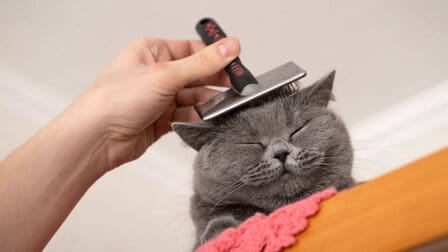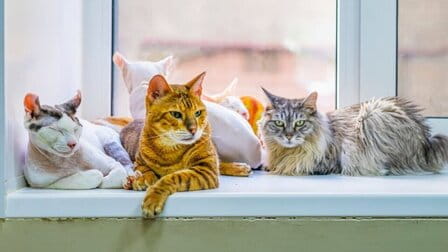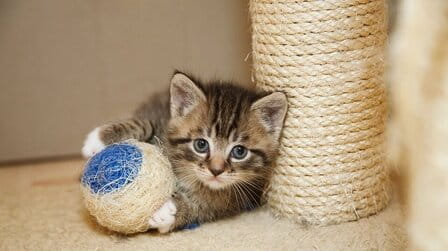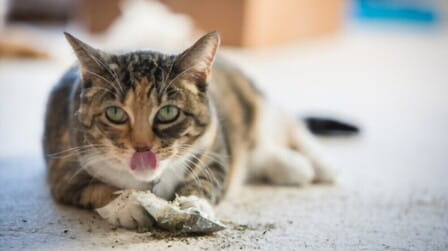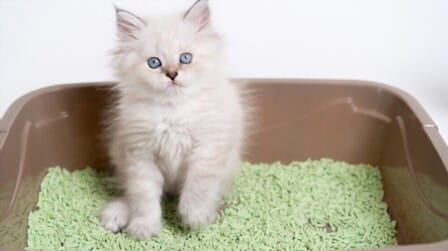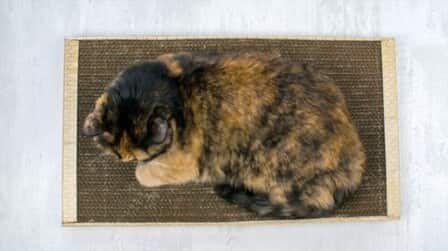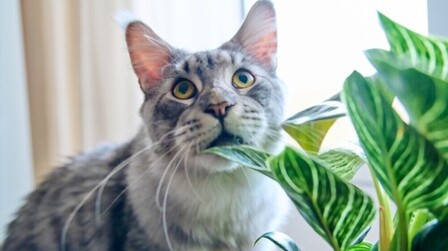Cats are designed to leap and climb. It shouldn't be surprising that many domesticated cats still make an effort to use these instincts even when they reside inside.
Cats may therefore hop onto items in your home that you'd want them to avoid. You'll need to think of ways to keep your pet off of tables, counters, and other surfaces. Here are some steps on list how to prevent cats from jumping on counters.
How to Prevent Cats from Jumping on Counters
Step 1
First step on the list of ways to prevent jumping on counters is providing an alternative surface. Provide alternative surfaces: Cats love to climb and jump, so it's important to provide them with alternative surfaces to explore. A cat tree or other climbing structure is a great option, as it gives your cat a designated area to play and climb.
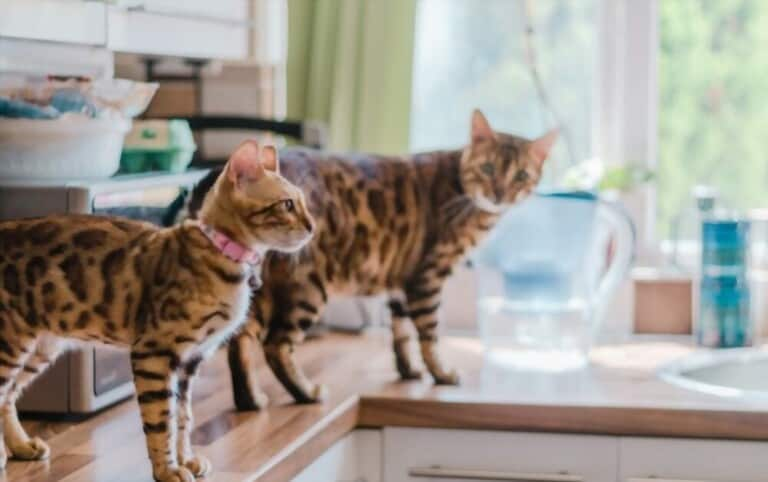
When choosing a cat tree, consider the size of your cat and the available space in your home. Look for a sturdy and stable cat tree that can withstand your cat's weight and movements. You may also want to choose a cat tree with different levels and textures, such as carpeted surfaces or scratching posts, to keep your cat interested.
Once you've chosen a cat tree, place it in an area where your cat likes to spend time, such as near a window or in a quiet corner of your home. Encourage your cat to use the cat tree by placing treats, toys, or catnip on the different levels.
With an alternative surface to climb and explore, your cat will be less likely to jump on counters or other surfaces in your home. However, it may take some time for your cat to get used to the cat tree, so be patient and keep encouraging them to use it.
Step 2
Use deterrents: There are several types of deterrents you can use to keep your cat off of counters. These methods are designed to discourage your cat from jumping onto counters by making the surface less appealing or uncomfortable for them.

Some factors include:
Double-sided tape: Cats don't like the sticky texture of double-sided tape, so placing strips of it on the edges of counters or tables can help keep them off.
Aluminum foil: The sound and texture of crinkled aluminum foil can be unpleasant for cats, so covering surfaces with foil can discourage them from jumping up.
Citrus-scented sprays: Cats are not fond of the smell of citrus, so spraying a citrus-scented spray on surfaces can discourage them from jumping up.
Lemon or orange peels: Placing lemon or orange peels on counters can also deter cats, as they don't like the smell of citrus.
When using deterrents, it's important to avoid harming your cat or damaging your furniture. Be sure to choose safe and non-toxic methods, and avoid using harsh chemicals or materials that could harm your cat.
It's also important to note that some cats may become desensitized to certain deterrents over time, so you may need to switch things up and try different methods to keep your cat off counters.
Step 3
Keeping counters clear is the next step on the list of ways to prevent cats from jumping on counters. Keep counters clear: Cats are more likely to jump on counters if they see something interesting up there. Keeping counters clear of food, dishes, and other tempting items can discourage your cat from jumping up.

To keep your counters clear, make sure to put away dishes and utensils after meals, wipe down counters and surfaces, and store food in sealed containers. If you have a particularly curious cat, you may want to consider keeping your food in the refrigerator or in a pantry with a door that closes securely.
It's also important to keep in mind that cats can be sneaky, and may still jump on counters even if there's nothing there. In these cases, it's important to use other deterrents or provide alternative surfaces for your cat to climb and play on.
By keeping counters clear, you can make it less tempting for your cat to jump up, and help encourage them to use designated areas for play and exploration.
Step 4
Use positive reinforcement: If your cat does jump on a counter, it's important not to punish them. Punishing your cat can create negative associations with you and with the kitchen, and may even make the problem worse.

Instead, redirect your cat's attention to a designated climbing structure or play area, and reward them when they use it. This can help reinforce positive behavior and encourage your cat to use the designated area instead of jumping on counters.
When your cat uses the designated area, offer verbal praise, pets, and treats to reinforce the behavior. Over time, your cat will learn that using the designated area is rewarding, and will be more likely to use it instead of jumping on counters.
It's important to be patient and consistent when using positive reinforcement. It may take some time for your cat to learn the behavior you want, so be sure to offer praise and rewards consistently over time. With patience and positive reinforcement, you can encourage your cat to stay off of counters and other surfaces in your home.
Why Cats Jump on Counters
Cats jump on counters for a variety of reasons, including curiosity, playfulness, and a desire for a high vantage point. Here are some of the main reasons why cats jump on counters:
Curiosity: Cats are naturally curious animals, and they may jump on counters to investigate new smells, objects, or activities. They may also jump up to see what their owners are doing or to explore their surroundings.
Playfulness: Cats are playful animals, and they may jump on counters as a form of play or to entertain themselves. Jumping up and down from high surfaces can be a fun activity for cats, especially if they have a lot of energy to burn.
Height: Cats are known for their love of high places, as it gives them a sense of security and allows them to survey their surroundings. Counters may be an appealing option for cats, as they provide a high vantage point and a place to rest and observe.
Food: Cats are known for their love of food, and they may jump on counters in search of a tasty treat or to investigate food smells. This can be especially true if your cat is hungry or if they smell something particularly appealing.
While cats jumping on counters is a common behavior, it can be problematic if they get into food or potentially harmful substances. By understanding why cats jump on counters and taking steps to discourage the behavior, you can help keep your cat safe and your kitchen clean.
Conclusion
It could be time to see a feline behavioral therapist if your constancy and effort appear to be in vain. To examine the scenario and develop fresh behavior modification strategies to assist you in keeping your cat off the countertop in this kind of circumstance, the professional is likely to visit your home. Hope the list on how to prevent cats from jumping on counters is useful for you.

